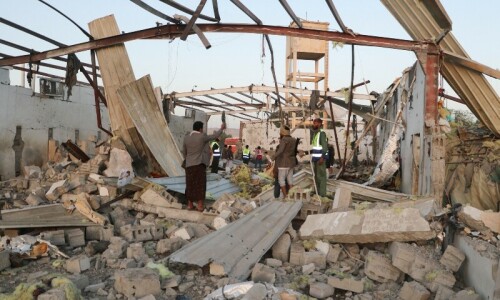LAHORE: May 13, 1978, when the journalists who stood against the dictatorship of Gen Ziaul Haq for press freedom were incarcerated and lashed, symbolises the struggle that journalists and journalism in Pakistan waged.
This was stated by speakers at a seminar hosted by the Lahore Press Club to mark the day. Those who were flogged during the dark era – Hussain Naqi, Khawar Naeem Hashmi, Nasir Zaidi and Masoodullah Khan – came to narrate their ordeal and advised the next generation of journalists on how to protect their right (freedom of press) won after a tough fight.
Octogenarian Hussain Naqi was of the view that meaning of journalism had changed a lot because of vested interests. “I really get baffled when I read that reference of the military leadership alongside the civilian leadership, giving an impression that this country had two leaderships, not one. We struggled for the civilian rights and were jailed and lashed for that crime. Now, even after 40 years, things have remained the same,” he lamented.
“On this day in 1978, we fought against a military dictator and offered sacrifices for the freedom of press. Now that freedom is under threat again,” he said and added: “In fact, the struggle started very early after the creation of Pakistan when the military secretary of Quaid-i-Azam asked what kind of role would they (army) have in Pakistan and the Quaid said as much as allowed by the civilians. This struggle led to the struggle of the 70s, which we are celebrating now. The young generation should know what democracy, constitutionalism and peoples’ right demand and follow them as their professional duty.”
Massood Ullah Khan advocated unity among journalists and professionalism. “As they say the more thing change, the more they remain the same.
Things might have changed, but the basic moorings are the same: journalism is for information and rights of people. Our generation succeeded due to selfless and committed leadership.
Now, as shown by the speeches of union leaders – berating each other – journalists and journalism have split to their own detriment. That is were our efforts should be (targeted).
It was because of unity we won the struggle against a brutal military dictator. If journalists remain split, they would further pale into irrelevance,” he warned.
Published in Dawn, May 14th, 2017











































